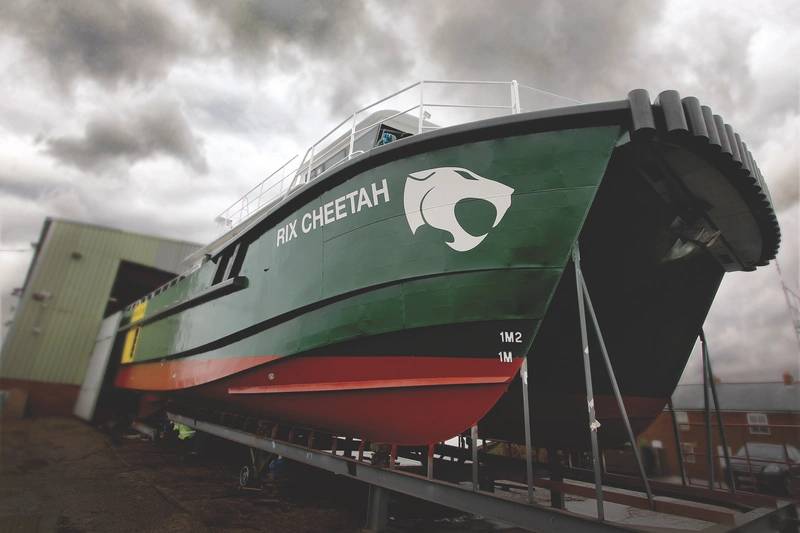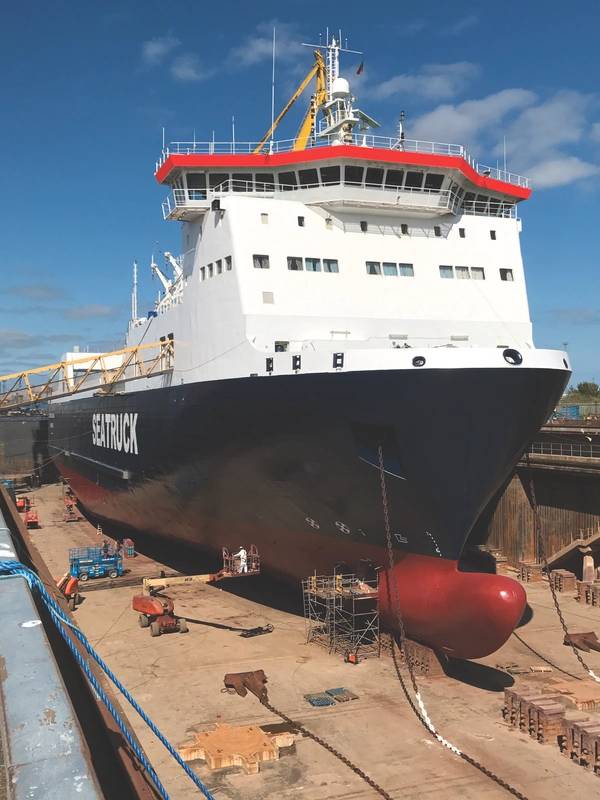Spending More Time at Sea
Margins are tight for vessels that operate offshore or in coastal waters. Take the global offshore support vessel (OSV) market for example, it looks set to be yet another challenging year which has concerned senior executives preparing for a sixth year of downturn. Many had hoped that 2019 would be the year that marked a turning point in OSV fortunes, but the uptick hasn’t materialized, and there is renewed anxiety about what could potentially be the worst market since the 1980s.
It comes as no surprise that costs associated with vessel maintenance or taking them out of cold layup have shown to be much steeper than expected, so it makes sound business sense to keep a vessel in tiptop shape. As with all offshore and coastal vessels it is vital that they spend as much time as possible in the water and actively engaged in operations which naturally translates to owners and operators wanting the minimum maintenance requirements.

Maintaining a vessel can be costly, so owners and operators need solutions that meet strict budget restrictions. Marine coatings can play a significant part here. By investing in the right hull and drydock coatings vessels can be protected with fast turnarounds and without compromising on quality.
Saving time – saving money
Seatruck is the only dedicated freight ferry company operating in the Irish Sea and cannot afford to have a vessel out of service for any length of time. With a fleet of 12 modern roll-on roll-off freight ferries, ranging in capacity from 65-150 unaccompanied trailers, Seatruck knows that time is essential to maximize its operations. When the company needed to bring two of its roll-on roll-off freight ferries into drydock within two weeks of each other, they needed a very fast turnaround to ensure both vessels could be back in service as quickly as possible.
The two vessels needed repairs to their anti-corrosive topside coatings and worldwide coatings manufacturer Hempel had just the solution comprising Hempadur Easy and Hempadur 47182. The first is a heavy-duty epoxy coating that dries in as little as little as two hours and cures to a hard and tough coating with good resistance to abrasion and sea water. The latter is a combined anti-corrosive primer and tie-coat sealer that eliminates one step in the coating process. This solution was a win-win as it not only offered corrosion protection but returned the vessels to service quickly.

Standing idly by
Many coastal and offshore vessels spend time lying idle and have variable operating patterns which is challenging when trying to maintain a fouling free hull. Technology in hull coatings has advanced and exceled in recent years and there are now solutions that remain effective even during idle periods of up to 120 days and in waters of varying temperatures. One such example is Hempel’s Hempaguard X7.
Rix Sea Shuttle provides shuttle services to offshore wind farms and adopted Hempaguard X7 for its Alicat-class support vessel Rix Cheetah. The hull was already coated with an antifouling product, but Rix was not satisfied with its performance so decided to switch to Hempaguard X7.
The unique Hempaguard X7 can be applied on top of an existing hull coating which meant that time and costs in drydock were significantly reduced. This coating solution is one of the most highly developed hull coatings to date and is a market leading solution for offshore vessels thanks to its unrivalled operational flexibility. Not only does it deliver on average six per cent fuels savings across the entire docking interval but also continues to perform if a vessel changes its operating patterns.
Long-term planning gives long-term benefits
Coastal and offshore vessels operate in environments in which oysters, mussels, seaweed and barnacles can all cause macro-fouling. Additionally, their operating patterns can mean that they are more prone to fouling. If the appropriate coatings are carefully selected and applied, the hydrodynamic drag and subsequent fuel expenditure are both reduced significantly, as well as saving time in drydock.
To ensure that a vessel remains in prime condition, Hempel’s FROSIO/NACE certified coating advisors can perform a vessel inspection in order to identify potential maintenance requirements and establish a comprehensive maintenance plan. The plan includes maintenance manuals and posters, as well as detailed advice on surface preparation. A full evaluation is also given to determine the best coating for the job.
Naturally, owners and operators should be working with their coatings partner to reduce the amount of time spent in drydock and maximize the time they spend in the water. They can do this by choosing the best coatings solution for their vessel and their business needs. However, this cannot be done by focusing all attention on the cheapest or most readily available products on the market. With the challenging year that lies ahead, OSV and coastal vessel owners and operators should be more selective, and find a solution that will enhance operational efficiency, improve bottom line and protect assets in the long term.
| The Author Andreas Glud, Group Segment Manager, Marine, Dry Dock, Hempel A/S |
